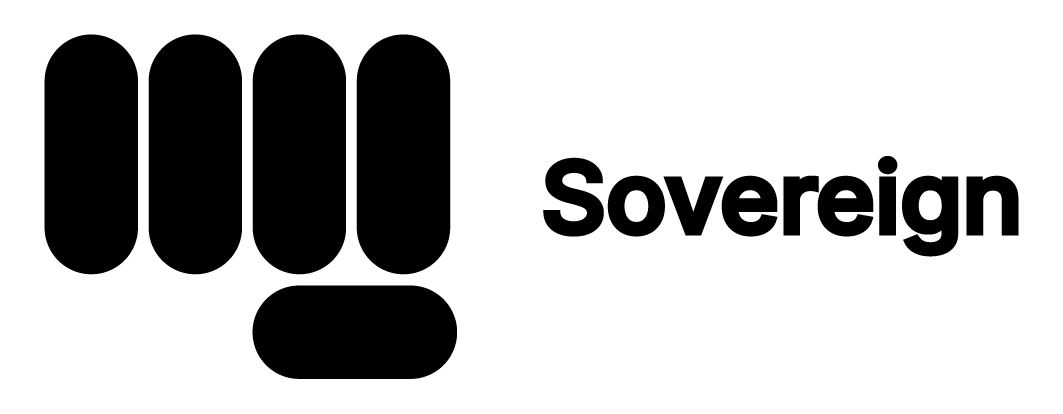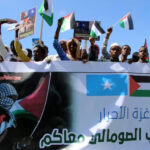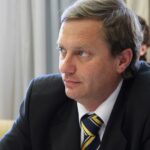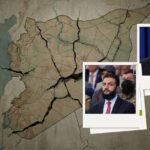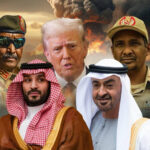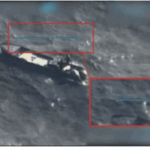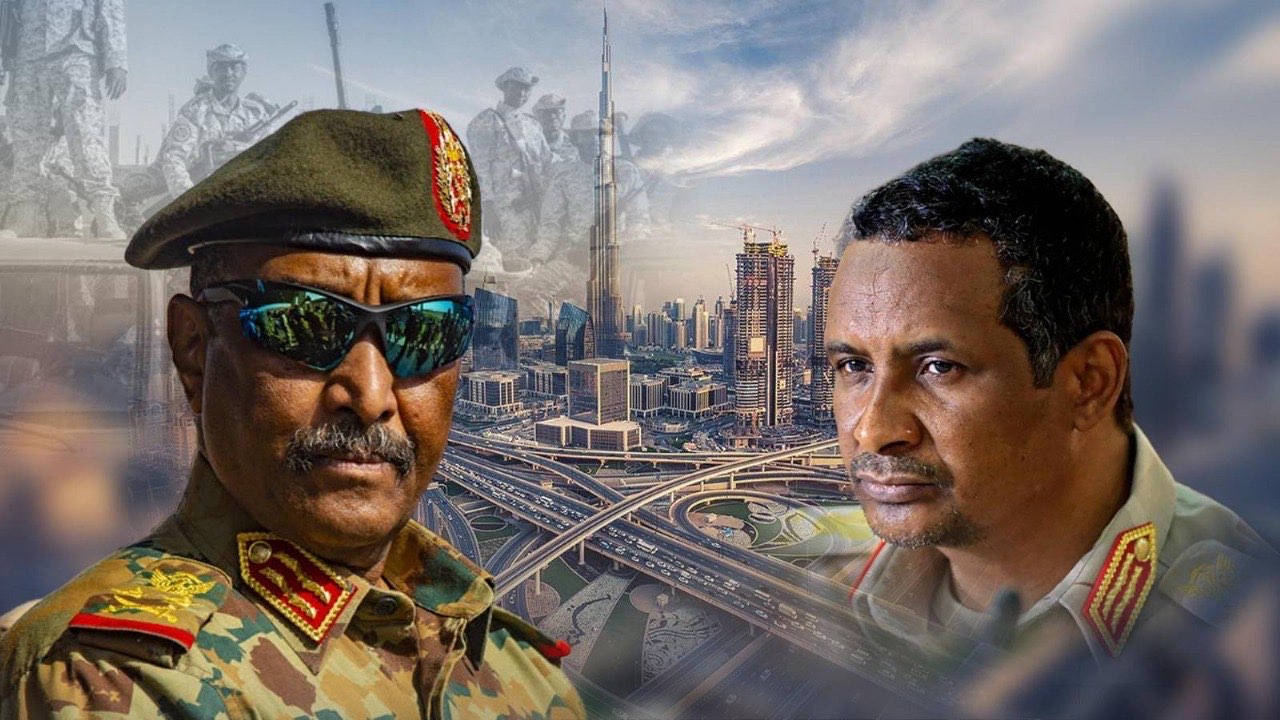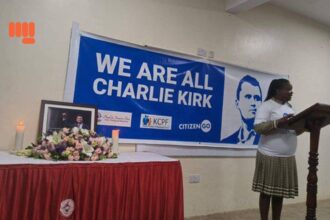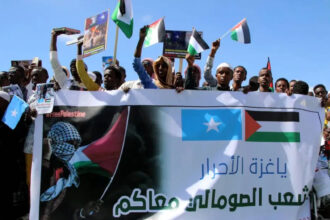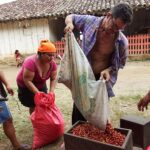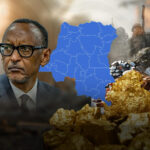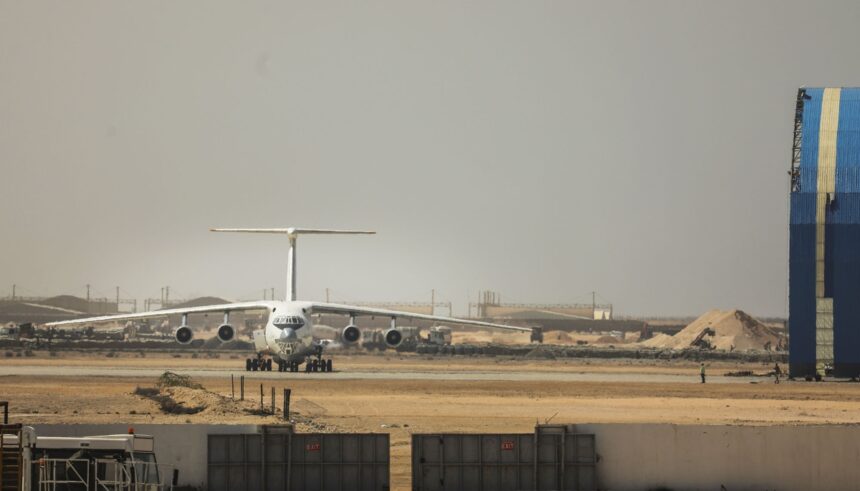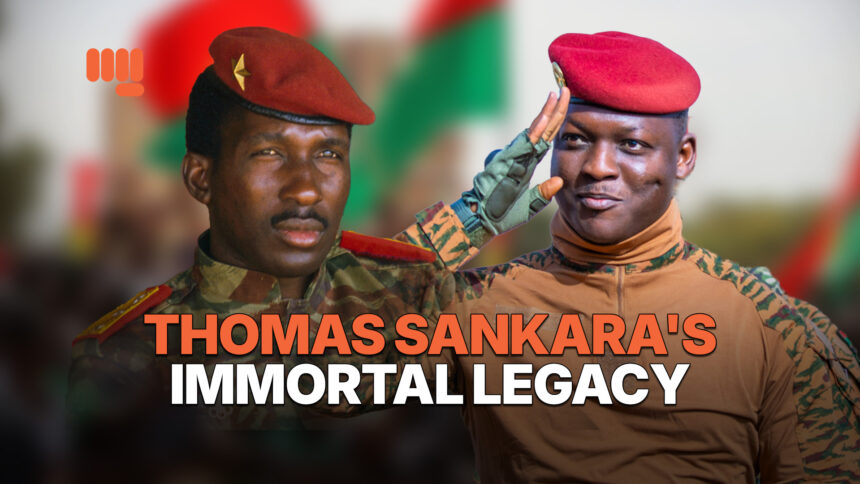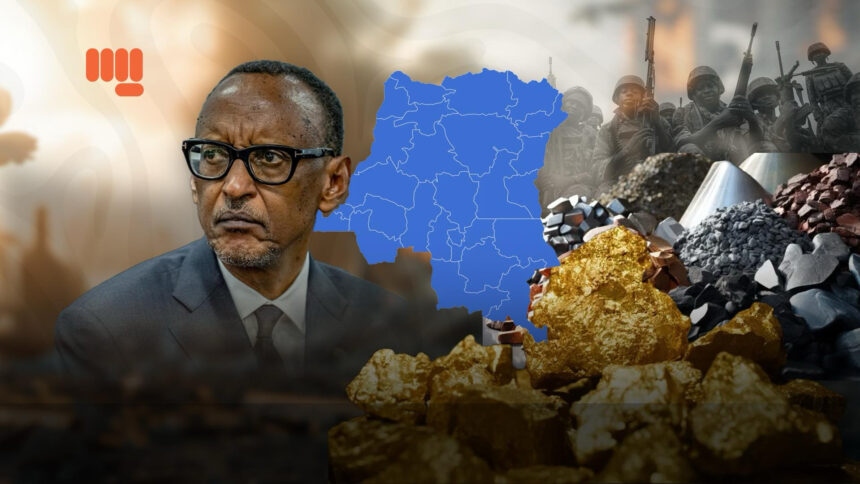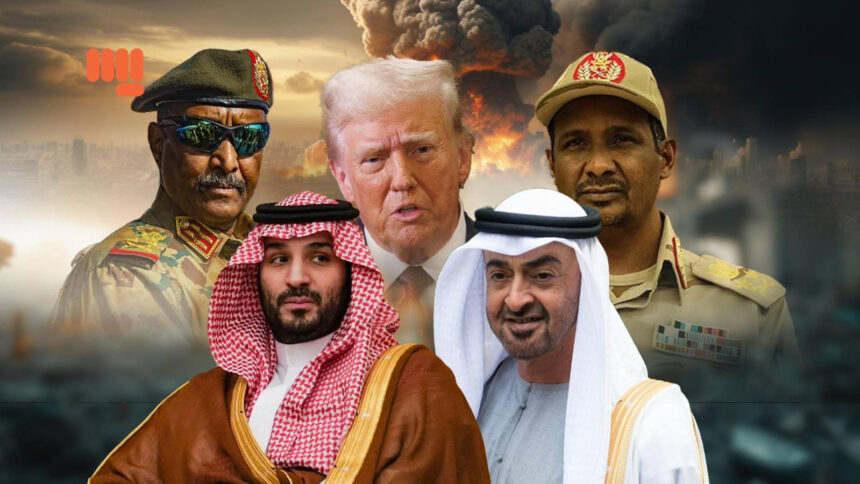As Donald Trump’s administration brokers what it calls a “peace roadmap” in Sudan, a familiar pattern is emerging: like in the Democratic Republic of Congo before it, imperialism’s seemingly-contradictory manoeuvres around war and peace serve only to destabilize Sudan, facilitating the extraction of its wealth.
The so-called Quad mechanism — an initiative launched by the United States, United Arab Emirates (UAE), Saudi Arabia and Egypt in Sudan — is positioning itself to carve up Sudan’s vast resource wealth. This process exploits the “peace roadmap” put forward by the administration of Donald Trump in the US.
The Quad is redrawing the country’s geopolitical map by gradually recognizing two separate states within Sudan. One is led by the Rapid Support Forces (RSF), which are backed by the UAE — a key US ally. The other is led by the Sudanese Armed Forces (SAF), which are backed by other regional powers, especially Saudi Arabia and Egypt, with the US providing support behind the scenes.
Sudan’s sovereignty is at a crossroads. US imperialist intervention is intensifying, pushing the country deeper into a neocolonial arrangement and threatening to repeat the situation in the Congo. The settlement there paved the way for the seizure of the DRC’s resources in exchange for what proved to be a false peace.
Like the peace deals imposed on the DRC, Rwanda, and Gaza — and the attempted settlements in Ukraine and elsewhere — US President Donald Trump is attempting to enforce new round of his global “trade diplomacy” strategy in Sudan’s nearly three-year war. These seemingly contradictory moves — intensifying war with one hand while promising peace with the other — are in fact part of a coherent agenda of destabilization, designed to weaken states and submit them further to imperialism.
Resources for peace
Through appeals to stopping atrocities, protecting civilians, and opening humanitarian aid corridors, Trump’s envoys and their regional allies have launched an assault on Sudan’s resources. Following the initial deal in Congo, Sudan is the next destination in a broader strategy to recolonize the region.
The talks forming part of the Quad mechanism’s so-called “peace process” — which are held in Washington, D.C. — are actually negotiations between the international and regional imperialist powers. These powers show no inclination to stop the proxy war that they wage through their local agents: the leadership of the SAF and the paramilitaries of the RSF.
Regional and international imperialist powers, together with their local agents, are engaging in compromise to settle their greedy resource ambitions. They sell the Sudanese people false dreams of stability to ensure that Sudan’s resources can be captured without resistance.
The brutal war has pushed millions from their homes and killed and injured hundred of thousands. Meanwhile, the two sides continue to purchase weapons from the imperialist countries while selling them Sudanese gold at bargain prices.
To increase its leverage, US imperialism has tactically imposed sanctions on the two warring parties, labelling Sudanese gold as a conflict mineral. Yet the majority of gold revenues are used to purchase arms from these very same gold buyers.
The intention is clear: extract cheap Sudanese gold while creating markets for weapons sales. But the war is not just about gold. We are seeing the proxy war develop into a full-blown war economy, with internal and external warlords systematically exploiting Sudanese resources.
The RSF closes roads, imposes taxes on traders and farmers, and loots crops, livestock and other commodities. These goods are then smuggled abroad through allies in neighboring countries, before finally reaching UAE markets and Nexira — two major French multinationals — are the main buyer of the Sudanese gum arabic, a natural gum produced by Acacia trees. This is a key ingredient used by Coca Cola, Pepsi, the global pharmaceutical industry, cosmetics companies and a range of other industries.
This gum arabic is produced by thousands of small farmers in Kordofan and Darfur. It is then smuggled by the RSF and local companies through Chad, another ally of the RSF and UAE, and into international markets. No one questions the French companies about the war or the money that flows into the pockets of local warlords, who claim to protect this strategic crop even while using the proceeds to buy weapons and incite further violence.
In SAF-controlled areas, thousands of farmers have made great sacrifices to achieve successful harvests despite instability and war. But the government buys their crops at low prices and trades them on international markets.
This occurs amid severe food shortages and declining productivity in cultivated areas. The government forces farmers to cultivate exported-oriented crops instead of planting food crops to fight hunger in rural areas and achieve self-sufficiency and food sovereignty.
For instance, alfalfa is still planted in Sudan and exported to feed livestock in Saudi Arabia, the UAE and other Gulf countries, while the children of Sudan die of hunger and malnutrition.
As conflicts of interests between the local and external capitalist powers escalate, the extraction of resources increases to finance the war in an endless cycle.
Buolos as a broker
Behind closed doors in Washington D.C., where imperialist powers are finalizing the division of Sudan’s resources, pressures have been applied to the weak local agents to surrender and hand over everything to imperialism.
Massad Fares Boulos, father of Trump’s son in-law and Senior Advisor to the President on Arab and Middle Eastern Affairs, is the broker responsible for the deals on Sudanese gold and resources in exchange for peace. He has orchestrated similar scenarios in many African countries, including Libya and the Central African Republic, as well as in the Middle East, Asia and even Europe.
The broker supervised the process of signing deals between the DRC government and international mining companies. He also oversaw arrangements between the Libyan government and major oil companies. Boulos harbors broad ambitions for Gaza’s strategic coastline and Ukraine’s fertile agricultural lands, among others. But he is currently focused on Sudan. Sudan was considered by the US to be a “rogue state” under former president Omar al-Bashir due to its close ties with China, Russia and North Korea. The country was blocked from US engagement for decades.
On the other side, Sudanese revolutionary movements have been co-opted by liberals and compradors who hijacked the uprising’s demands. They have adopted neoliberal policies aiming at integrating Sudan into the global market.
Although Bashir is considered a capitalist working under the banner of political Islam, he attempted to resist imperialism — unlike his successor after the revolution, the former Western ally Abdallah Hamdok.
Compromise mentality
The broker, Boulos, has started to blackmail al-Burhan with US allegations that the SAF used chemical weapons during the war. He has also tempted him with promises that he would be allowed to stay in power, defeat his rival Hemedti, and continue to monopolize the nation’s wealth.
This carrot-and-stick tactic has fallen on fertile ground. Al-Burhan already posses a compromised mentality, believing that he can play different groups against each other to save himself from US sanctions and remain in power.
This compromised position has pushed al-Burhan to use dual tactics and discourse. He adopts pragmatism when dealing with imperialism while projecting radicalism internally to legitimize the army’s position in its conflict with civilians.
Accordingly, al-Burhan has hitched his hopes on the US, sending a delegation for talks with US officials in Washington D.C. last week, hoping to secure all the benefits he seeks.
But the secret talks leaked to the press and his allies, including Islamists, the coalition of former Darfur rebel movements, and other democratic volunteer and self-defense forces. This led to fragmentation among his supporters. The talks have since collapsed, as the SAF rejected the participation of the UAE as a mediator despite its direct involvement in the support of the RSF militia .
Commodifying war
Meanwhile, the proxy war continues. Absurdly, both countries sponsoring the local warring parties are allies of the United States, which manoeuvres behind the scenes to impose its interventions through false roadmaps to peace. But the final goal is clear: to maximise instability and facilitate the extraction of Sudan’s resources, especially its gold, while profiting from the “reconstruction” projects made necessary by the war.
Indeed, these reconstruction projects are among the main profit sources eyed by regional and international corporate giants. The government estimates that the efforts might cost some $130 billion dollars — a major spending bonanza, around which the vultures of international capital are swirling.
Assuming this refers to the major gum producer.
Propose deleting. The point is already made earlier in the piece.
Why “despite”? It seems like this is a good reason to reject the UAE as a mediator.
